{jcomments off}
Advisory Committee
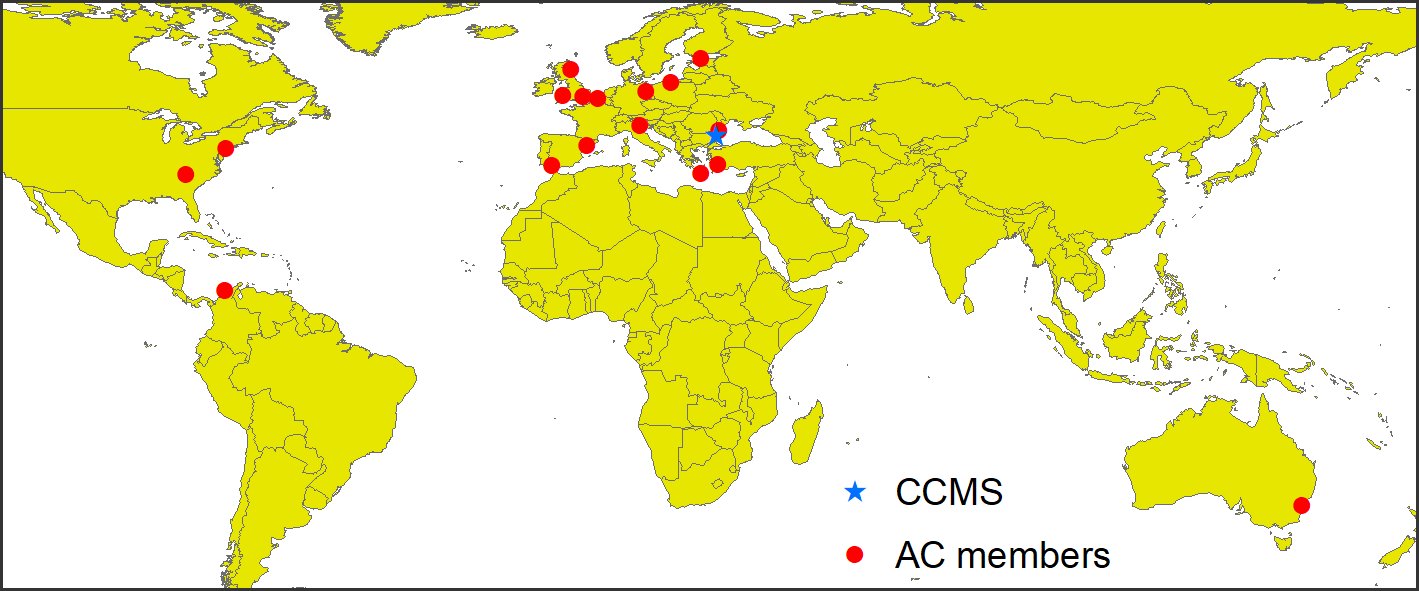
Our research program and projects require close collaboration with coastal and marine scientific and research community and the support of different institutions, external experts, consultants, etc. The Foundation is directly advised by an Advisory Committee (AC), which is part of the governance structure of CCMS. The AC members are distinguished, world-class scientists, researchers and experts from other institutions having significant experience in both coastal/marine science and management. The membership to the Advisory Committee of CCMS is honourable and it features collaboration and partnership activities with particular contributions to the CCMS.
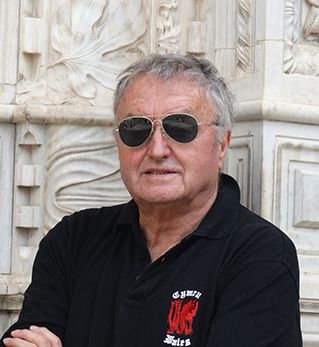 Prof. Allan Williams is Emeritus Professor at Swansea Metropolitan University, Swansea, Wales, UK. He has published >360 papers and reports, specializing in coastal processes and coastal management. He has worked mainly in Europe, but also Africa, China, India, the USA and Latin America. He was an Erskine Fellow at the University of Canterbury, Christchurch, New Zealand; Scientific researcher at the International Hurricane Research Centre, Miami, USA and a holder of a Winston Churchill Fellowship award. Consultancies have included work carried out for: Wardell-Armstrong Eng; Hyder Engineering; Robert West and partners; Asia Development Bank; International Coral Reef Organisation Ltd.; UNDP; EUCC; PAPRAC, Split, Croatia.
Prof. Allan Williams is Emeritus Professor at Swansea Metropolitan University, Swansea, Wales, UK. He has published >360 papers and reports, specializing in coastal processes and coastal management. He has worked mainly in Europe, but also Africa, China, India, the USA and Latin America. He was an Erskine Fellow at the University of Canterbury, Christchurch, New Zealand; Scientific researcher at the International Hurricane Research Centre, Miami, USA and a holder of a Winston Churchill Fellowship award. Consultancies have included work carried out for: Wardell-Armstrong Eng; Hyder Engineering; Robert West and partners; Asia Development Bank; International Coral Reef Organisation Ltd.; UNDP; EUCC; PAPRAC, Split, Croatia. 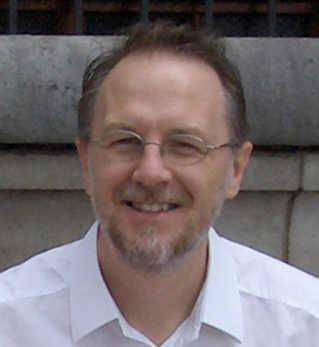 Dr. Andreas Baas achieved his BSc in Physical Geography and Soil Science and his MSc in Process Geomorphology at the University of Amsterdam (UvA), including work at the Desert Research Institute in Reno, Nevada. He then moved to the University of Southern California (USC) where he earned his PhD on investigating the formation and behavior of aeolian streamers, supported by the National Science Foundation (NSF) and a Tyler Environmental Fellowship.
Dr. Andreas Baas achieved his BSc in Physical Geography and Soil Science and his MSc in Process Geomorphology at the University of Amsterdam (UvA), including work at the Desert Research Institute in Reno, Nevada. He then moved to the University of Southern California (USC) where he earned his PhD on investigating the formation and behavior of aeolian streamers, supported by the National Science Foundation (NSF) and a Tyler Environmental Fellowship.
In 2003 he was appointed Lecturer, then Senior Lecturer, and now Reader in Geomorphology at the Department of Geography at King's College London. Andreas is an editor for Nonlinear Processes in Geophysics, an associate editor for Earth Surface Dynamics, an editorial board member for Geomorphology, and an active session convener for the Geomorphology Division of the European Geosciences Union (EGU). Andreas' research is supported by The Leverhulme Trust, The Nuffield Foundation, and the UK Natural Environment Research Council, and spans all aspects of aeolian geomorphology across a range of spatio-temporal scales, including the physics of aeolian sediment transport, field experiments on the interactions between airflow turbulence and sand transport, and coastal dunes and dune fields.
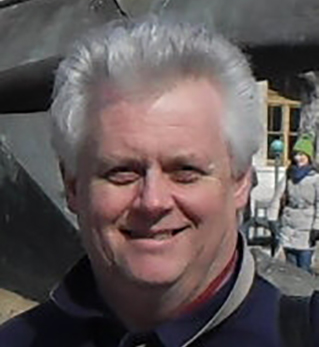 Dr. David R. Green is the Director of the Aberdeen Institute for Coastal Science and Management (AICSM), Director of the M.Sc. Degree Programme in Geographical Information Systems, and Director of the UAV Centre for Environmental Monitoring and Mapping (UCEMM) at the Department of Geography and Environment, University of Aberdeen, Scotland, United Kingdom.
Dr. David R. Green is the Director of the Aberdeen Institute for Coastal Science and Management (AICSM), Director of the M.Sc. Degree Programme in Geographical Information Systems, and Director of the UAV Centre for Environmental Monitoring and Mapping (UCEMM) at the Department of Geography and Environment, University of Aberdeen, Scotland, United Kingdom.
He is past Chairman of the Association for Geographic Information (AGI); past Editor in Chief of the Cartographic Journal; past-President of the EUCC–The Coastal and Marine Union; past-Vice-Chair of the European Centre for Nature Conservation Scientific Committee (ECNC); Currently a Director and Chair of EGCP Ltd., and Chair of the CoastGIS 2018 Conference.
He is a specialist in the environmental applications of geospatial technologies with interests in geographical information systems, remote sensing (terrestrial and bathymetric), cartography/digital mapping, Internet and mobile GIS, coastal and marine resource management, hydrography, marine spatial planning (MSP), and UAV technology.
He has published a number of books on Coastal Zone Management and Geographical Information Systems (GIS). David is also Editor in Chief of the Journal of Coastal Conservation, Planning and Management (Springer).
AICSM: www.abdn.ac.uk/aicsm
UCEMM: www.abdn.ac.uk/research/ucemm
MSc in GIS: www.abdn.ac.uk/gis
He is a specialist in the environmental applications of geospatial technologies with interests in geographical information systems, remote sensing (terrestrial and bathymetric), cartography/digital mapping, Internet and mobile GIS, coastal and marine resource management, hydrography, marine spatial planning (MSP), and UAV technology.
He has published a number of books on Coastal Zone Management and Geographical Information Systems (GIS). David is also Editor in Chief of the Journal of Coastal Conservation, Planning and Management (Springer).
AICSM: www.abdn.ac.uk/aicsm
UCEMM: www.abdn.ac.uk/research/ucemm
MSc in GIS: www.abdn.ac.uk/gis
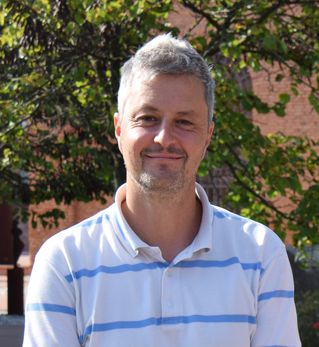 Emiliano Ramieri (BSc/Master Degree in Environmental Sciences) is a senior project manager at the Institute of Marine Sciences of the Italian National Research Council. He has more than 20 years’ experience in coastal and marine policies, planning and studies. His research mainly focuses on science to policy and science to practices projects and activities at the national, Adriatic, Mediterranean and EU level, specifically dealing with Maritime Spatial Planning (MSP), Integrated Coastal Zone Management (ICZM), Land-Sea Interactions (LSI), sustainable blue economy and climate change adaptation (in particular in coastal and marine areas).
Emiliano Ramieri (BSc/Master Degree in Environmental Sciences) is a senior project manager at the Institute of Marine Sciences of the Italian National Research Council. He has more than 20 years’ experience in coastal and marine policies, planning and studies. His research mainly focuses on science to policy and science to practices projects and activities at the national, Adriatic, Mediterranean and EU level, specifically dealing with Maritime Spatial Planning (MSP), Integrated Coastal Zone Management (ICZM), Land-Sea Interactions (LSI), sustainable blue economy and climate change adaptation (in particular in coastal and marine areas).
Since 2011, he has been involved in several MSP and ICZM projects, as SHAPE, MUSES, SUPREME, SIMWESTMED, MARSPLAN-BS, EU MSP Platform, PHAROS4MPAs and MSPMED. Since 2011 to 2021 he has been member of the European Topic Centre on Climate Change Adaptation of the EEA, in particular contributing to the development of the EU Climate-ADAPT platform. He is consultant of UNEP-MAP PAP/RAC on ICZM and MSP, having being involved, among the others, in the development of the “Conceptual Framework for MSP in the Mediterranean” and in the elaboration of a step-by-step methodology for LSI analysis within MSP and ICZM. He is also experienced in regional (Mediterranean Sea) and sub-regional cooperation (Adriatic-Ionian region) on above topics.
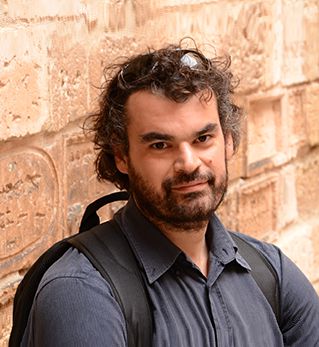 Dr. George Alexandrakis is currently a postdoctoral researcher at the Institute of Applied and Computational Mathematics at the Foundation of Research and Technology – Hellas. His current research interests include coastal processes, risk and vulnerability analysis, and coastal zone management and spatial planning, coastal geology and sedimentology, Climatic change: Sea and land interaction, sustainability, environmental Multi Hazard Risk, Spatial environmental and economic analysis and Climatic change impact of cultural heritage sites.
Dr. George Alexandrakis is currently a postdoctoral researcher at the Institute of Applied and Computational Mathematics at the Foundation of Research and Technology – Hellas. His current research interests include coastal processes, risk and vulnerability analysis, and coastal zone management and spatial planning, coastal geology and sedimentology, Climatic change: Sea and land interaction, sustainability, environmental Multi Hazard Risk, Spatial environmental and economic analysis and Climatic change impact of cultural heritage sites.
He is member in the Geotechnical Chamber of Greece, the Hellenic Oceanographers Association and European Geoscience Union. He was Principal Investigator in the ClimaTourism project (2012-2015) which investigated the influence of climatic change on the coastal environment in relation with tourist planning. Currently, he is involved as Work package leader in the EU H2020 HERACLES projects in the fields of Risk and vulnerability assessments. Also, he is collaborating with INGV-OV Naples, Italy as Principal Investigator in the Brains2Islands project (Italian National research funds), which investigates the risk from natural hazards of archaeological sites in the Aeolian Islands, Italy. He has participated as a researcher in 8 concluded research projects and has more than 60 publications on journals, book chapters and conference proceedings.
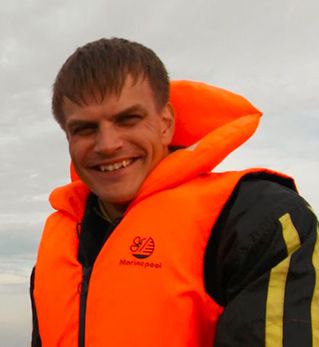 Dr. Hannes Tõnisson is a coastal/marine scientist with ca 18 years’ experience from Institute of Ecology, Tallinn University with a special interest in coastal processes (erosion and accumulation, shoreline changes), human impact versus climate change effects to the coastal ecosystems. His most recent studies are related to the ancient coastal formations, changes in storminess during last couple of millennia and also marine bottom sediments and application of geophysical methods in the coastal zone research.
Dr. Hannes Tõnisson is a coastal/marine scientist with ca 18 years’ experience from Institute of Ecology, Tallinn University with a special interest in coastal processes (erosion and accumulation, shoreline changes), human impact versus climate change effects to the coastal ecosystems. His most recent studies are related to the ancient coastal formations, changes in storminess during last couple of millennia and also marine bottom sediments and application of geophysical methods in the coastal zone research.
He is also carrying out number of applied projects related to risk assessments for the activities planned in the coastal zone. He holds a Ph.D. in Ecology (coastal geology) since 2008. The title of thesis was: “Development of Spits on Gravel Beach Type in Changing Storminess and Sea Level Conditions”. He has been involved in number of EU projects since 2005 including INTERREG project: “ASTRA - Developing Policies & Adaptation Strategies to Climate Change in the Baltic Sea region,“ from 2005-2007; EEA grants: „Development of methods for assessment and mapping of ecosystem services of marine and inland waters,“ from 2014-2015 and „Assessment for ecosystem based management of marine environment on the basis of sea bottom and sediments of the Gulf of Finland,“ from 2014-2016, and BONUS programme Project: „A Systems Approach Framework for Coastal Research and Management in the Baltic,“ from 2015-2018. Generally, he has been responsible for implementing more than 50 projects (research and applied, small scale and large scale) during the last 5 years. It is worth highlighting that in 2016 he completed a project where return period maps of floods for all major Estonian rivers (over 70) and lakes (nearly 100) were created. Hannes Tõnisson has been a convener of Geomorphology Session at the EGU General Assembly: ”Coastal zone geomorphologic interactions: natural versus human-induced driving factors” since 2011. He has been convener and co-convener in number of coastal sessions in International Coastal Symposium (ICS) and Baltic Sea Science Congress (BSSC). He has been member of the Board of Estonian Geographical Society from 2005 to 2010. He is national expert for United Nations World Oceans Assessment I. He is also elected member for Estonian Academy for Young Researchers (Member of establishing committee). He is currently working as a senior research fellow for Institute of Ecology, Tallinn University and he is acting as a head of coastal research group. He is also author for over 120 research publications in total (ca 70 publications are peer reviewed), including over 40 publications indexed in ISI/Web of Science.
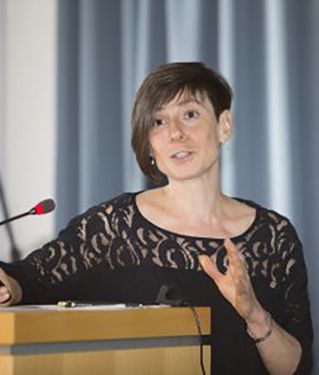 Kathy Belpaeme is head of the coastal department at the Province of West Flanders. She is responsible for the regional co-operation at the coast, in which a multidisciplinary and integrated approach is key. Before joining the province, Kathy was responsible for the Co-ordination Centre for Integrated Coastal Zone Management for 12 years. This Centre was a collaboration between federal, Flemish and provincial authorities. Its tasks been broadly take over by the province in 2014.
Kathy Belpaeme is head of the coastal department at the Province of West Flanders. She is responsible for the regional co-operation at the coast, in which a multidisciplinary and integrated approach is key. Before joining the province, Kathy was responsible for the Co-ordination Centre for Integrated Coastal Zone Management for 12 years. This Centre was a collaboration between federal, Flemish and provincial authorities. Its tasks been broadly take over by the province in 2014.
Co-operation between sectors and the different governmental levels continue to be central in her work. In addition, spatial planning is an important topic, and in particular the link and interaction between land and sea is essential at the coast.
Kathy was appointed by the federal government to act as the Integrated Coastal Management (ICM) & Land-sea-interaction (LSI) expert, and most recently she was involved as LSI expert in the process of developing a vision for the Belgian part of the North Sea in 2050.
Key themes:
- Integrated Coastal Management (ICM)
- Spatial planning (on land as well as at sea)
- Stakeholder participation
- Long term planning and vision formation at the coast
- Administrative cooperation (with municipalities, Flanders, federal level) regarding ICM
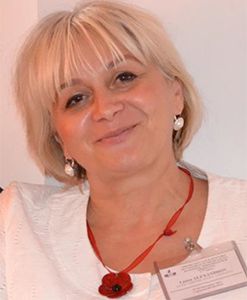 PhD Mihaela Laurenta Alexandrov, Senior Researcher at National Institute for Marine Research and Development “Grigore Antipa”, Constanta, Romania, graduated in Fisheries and Aquaculture technologies and has PhD in Industrial Engineering at University “Lower Danube”, Galati.
PhD Mihaela Laurenta Alexandrov, Senior Researcher at National Institute for Marine Research and Development “Grigore Antipa”, Constanta, Romania, graduated in Fisheries and Aquaculture technologies and has PhD in Industrial Engineering at University “Lower Danube”, Galati.
Postgraduation in Marine Ecology, Aquaculture and Marine Spatial Planning (MSP) and specialised in ecological effects of pollution (Ukraine), Maritime Spatial Planning (Belgium), recirculated system (France), eutrophication (Switzerland), fisheries and environment development (Japan), fisheries production and management (Israel, Turkey). As representative of MSP Focal Point for the Black Sea under the MSP Platform coordinated NIMRD-MSP projects, including MARSPLAN BS Project as transboundary approach between Bulgaria and Romania. With management responsibilities in some significant European projects, mentioning PlanCoast CADSES-INTRREGIII (2006-2007), Tasaul-ESTROM (2005-2007), PEGASO-FP7 (NIMRD-2010-2014), SRCSSMBSF-JOP Black Sea-CBC (2011-2013), ECOAST-COFASP (2016-2019), had lectures as affiliation to the University Constanta “Ovidius” and to Balkan Training Centre (BENA), Romania, being involved in many educational trainings in relation with Romanian universities; membership in some scientific national and European organisation and of Scientific Council of NIMRD “G.Antipa”; member of Romanian CISE Commission for Maritime Surveillance (under the Ministry of Transport coordination); member of the National Committee of Coastal Zone (coordinated by the Ministry of Waters and Forests); participant to the almost all European MSP events in the last three years. Author of a significant number of articles in the field of aquaculture, fisheries, coastal waters and wetlands and some MSP publications and books in English and Romanian languages.
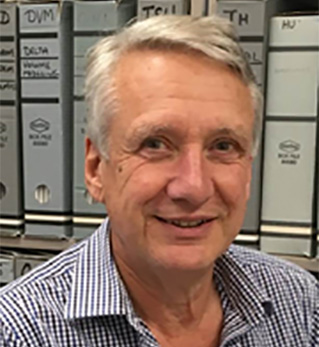 Prof. Colin Woodroffe is Professor in the School of Earth and Environmental Sciences at the University of Wollongong. He has a PhD and ScD from the University of Cambridge. Colin has studied the stratigraphy and development of coasts in Australia and New Zealand, as well as on islands in the West Indies, and Indian and Pacific Oceans. He has written a comprehensive book on Coasts, form, process and evolution, co-authored a book on The Coast of Australia, and is also co-author of a book Quaternary Sea-Level Changes: a global perspective. Colin was a lead author on the coastal chapter in the 2007 Intergovernmental Panel on Climate Change (IPCC) Fourth Assessment report. He teaches coastal geomorphology and the application of geospatial techniques to coastal environments.
Prof. Colin Woodroffe is Professor in the School of Earth and Environmental Sciences at the University of Wollongong. He has a PhD and ScD from the University of Cambridge. Colin has studied the stratigraphy and development of coasts in Australia and New Zealand, as well as on islands in the West Indies, and Indian and Pacific Oceans. He has written a comprehensive book on Coasts, form, process and evolution, co-authored a book on The Coast of Australia, and is also co-author of a book Quaternary Sea-Level Changes: a global perspective. Colin was a lead author on the coastal chapter in the 2007 Intergovernmental Panel on Climate Change (IPCC) Fourth Assessment report. He teaches coastal geomorphology and the application of geospatial techniques to coastal environments.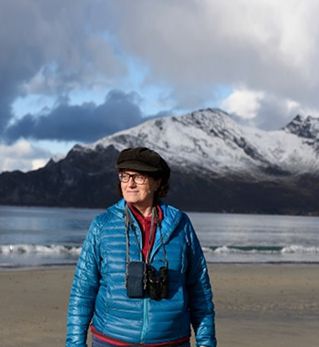 Prof. Françoise Breton is Emeritus Professor at the Universitat Autònoma de Barcelona, she is involved in research on coastal and sea socio-environmental systems and resource management. Anthropologist, geographer and Environmental Science expert, work focused on integrated management, co-management of ecosystems and habitats, and governance. Formed in Paris X University, later at the Boston University (1978-1980), and at the UAB, she created and directed the Centre for Sea study in Sitges, Barcelona Diputación (1981-90), working on fisheries, fishermen knowledge, and fishery anthropology in collaboration with A. Geistdorffer and the Museum of Natural History of Paris.
Prof. Françoise Breton is Emeritus Professor at the Universitat Autònoma de Barcelona, she is involved in research on coastal and sea socio-environmental systems and resource management. Anthropologist, geographer and Environmental Science expert, work focused on integrated management, co-management of ecosystems and habitats, and governance. Formed in Paris X University, later at the Boston University (1978-1980), and at the UAB, she created and directed the Centre for Sea study in Sitges, Barcelona Diputación (1981-90), working on fisheries, fishermen knowledge, and fishery anthropology in collaboration with A. Geistdorffer and the Museum of Natural History of Paris.
Head of the UAB Interfase Research Group since 1990. After different collaborations with international institutions in Europe, she coordinated the EU FP7 project PEGASO, on ICZM and governance in the Mediterranean and the Black Sea (2010-2014). She developed with IRD responsible research with local communities on ecosystem services and food security in the West-African coast. Since 2015 she has focussed research on marine mammals in the Arctic and their interactions with people, collaborating with the Norwegian College of Fishery Sciences, University of the Arctic - Tromso, and the Svalbard University, Norway. The Research Center on the ARCTIC was Inaugurated the 1st December 2017 at the Universitat Autònoma de Barcelona, together with the 2017 Stefansson Memorial Lecture, by the Stefansson Arctic Institute (Iceland), where she is Associate Professor, and the Institute of Arctic Studies, Dartmouth College, USA.In February 2016, she awarded the Narcís Monturiol medal of the Catalan govern in recognition to her high research and innovation trajectory.
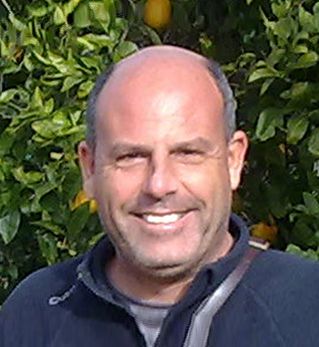 Prof. Giorgio Anfuso is coastal researcher and professor at the Faculty of Marine and Environmental Sciences at Cadiz University (Spain) since 1999. From about 25 years is working on coastal processes at different time scales, from hours (by sediment transport and disturbance depth campaigns), days-months (by field surveys and monitoring programs) to decadal coastal evolution by means of aerial photos and satellite images analysis.
Prof. Giorgio Anfuso is coastal researcher and professor at the Faculty of Marine and Environmental Sciences at Cadiz University (Spain) since 1999. From about 25 years is working on coastal processes at different time scales, from hours (by sediment transport and disturbance depth campaigns), days-months (by field surveys and monitoring programs) to decadal coastal evolution by means of aerial photos and satellite images analysis.
He is also working on management issues, Environmental Sensitivity Maps for oil spilling, coastal scenery and litter characteristics and distribution, carrying out investigations in Spain, Italy, Morocco, Ireland, Colombia, Cuba, Mexico and Ecuador, among other countries. He participated in different national and international projects focused on beach morphology, evolution and response to storms impacts. As an example, he coordinated during the period 2009-2011, the Project titled “Mecanismos de respuesta y recuperación de sistemas litorales frente la actuación de temporales marítimos” (Mechanisms of beach response to storm events), CGL2008-00458/BTE - funded by Spanish Ministry of Science. Giorgio Anfuso is a convener of the Geomorphology Session at the EGU General Assembly: ”Coastal zone geomorphologic interactions: natural versus human-induced driving factors” for 2009 to present (http://www.egu.eu/). He is author and co-author of about 70 peer reviewed publications in international journals.
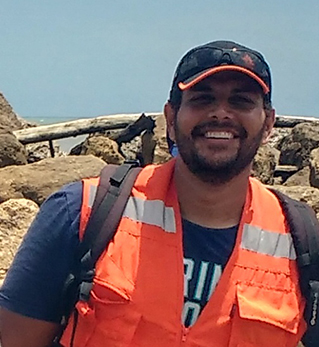 Prof. Nelson Guillermo Rangel-Buitrago Bsc. geology, Msc Earth Sciences and Ph.D. in Sea Sciences. Coastal/marine scientist with 15 years` experience with a special interest in coastal processes, sand beaches/dunes, coastal erosion and shoreline changes, coastal hazards, marine pollution and most recently in Maritime Spatial Planning and sustainable development. He holds a Ph.D. in Sea Sciences in 2013 with thesis: “Storms impacts on littoral systems of Cadiz province, Spain”. He is currently full Professor of Geology at the University of Atlantico, Barranquilla, Colombia. He has been teaching at the university level since 2003. In addition to his teaching experience, he has conducted many research projects on geology, geomorphology, and oceanography and has served as an expert consultant for national and international organisations, mostly in Spain and Colombia. Dr. Rangel has published more than 40 articles in international journals and has edited or authored 25 books.
Prof. Nelson Guillermo Rangel-Buitrago Bsc. geology, Msc Earth Sciences and Ph.D. in Sea Sciences. Coastal/marine scientist with 15 years` experience with a special interest in coastal processes, sand beaches/dunes, coastal erosion and shoreline changes, coastal hazards, marine pollution and most recently in Maritime Spatial Planning and sustainable development. He holds a Ph.D. in Sea Sciences in 2013 with thesis: “Storms impacts on littoral systems of Cadiz province, Spain”. He is currently full Professor of Geology at the University of Atlantico, Barranquilla, Colombia. He has been teaching at the university level since 2003. In addition to his teaching experience, he has conducted many research projects on geology, geomorphology, and oceanography and has served as an expert consultant for national and international organisations, mostly in Spain and Colombia. Dr. Rangel has published more than 40 articles in international journals and has edited or authored 25 books.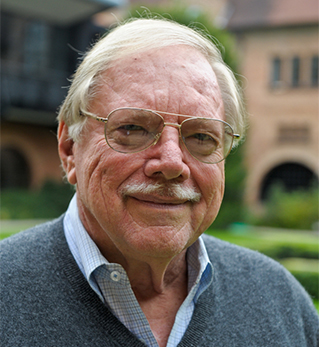 Prof. Dr. Norbert P. Psuty is Professor Emeritus at Rutgers University – The State University of New Jersey. He is a coastal geomorphologist whose research encompasses the dynamics of the coastal zone, incorporating process-response studies of beaches, coastal dune processes and morphology, sediment budget studies, barrier island dynamics, estuarine sedimentation, and sea-level rise. His research has both a basic science component as well as an applied side.
Prof. Dr. Norbert P. Psuty is Professor Emeritus at Rutgers University – The State University of New Jersey. He is a coastal geomorphologist whose research encompasses the dynamics of the coastal zone, incorporating process-response studies of beaches, coastal dune processes and morphology, sediment budget studies, barrier island dynamics, estuarine sedimentation, and sea-level rise. His research has both a basic science component as well as an applied side.
He is currently Project Leader of the shoreline monitoring effort for the Northeast Coastal Barrier Network of the National Park Service, a program to establish a regional and then nationwide methodology to track, measure, and understand coastal change in the coastal National Parks. This program has been extended to the coastal refuges in the US Fish & Wildlife Service and to the Jacques Cousteau National Estuarine Research Reserve. Some of the effort is directed toward the instrumentation that is used to build the data bases, whereas some of the effort is directed to understanding the scale of changes in annual and decadal time frames. He is very concerned with the coastal changes taking place under the influence of global climate change and sea-level rise. This area of inquiry requires an investigation into the scales of sea-level encroachment and the generation of models to describe the impacts of various magnitudes of sea-level rise, imposed storms, and sediment budget. His research involvement results in direct input and advice related to decisions regarding land-use in coastal areas exposed to the impacts of sea-level rise.
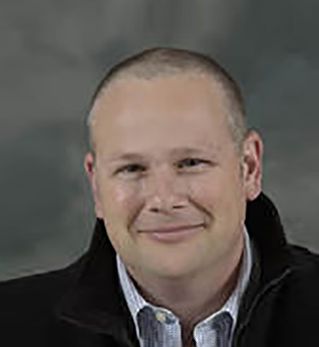 Prof. Robert S. Young is the Director of the Program for the Study of Developed Shorelines, a joint Duke University/Western Carolina University venture. He is also a Professor of Coastal Geology at Western Carolina University and a licensed professional geologist in three states (FL, NC, SC). The Program for the Study of Developed Shorelines (PSDS) is a research and policy outreach center serving the global coastal community. The primary mission of PSDS is to conduct scientific research into coastal processes and to translate that science into management and policy recommendations through a variety of professional and public outreach mechanisms.
Prof. Robert S. Young is the Director of the Program for the Study of Developed Shorelines, a joint Duke University/Western Carolina University venture. He is also a Professor of Coastal Geology at Western Carolina University and a licensed professional geologist in three states (FL, NC, SC). The Program for the Study of Developed Shorelines (PSDS) is a research and policy outreach center serving the global coastal community. The primary mission of PSDS is to conduct scientific research into coastal processes and to translate that science into management and policy recommendations through a variety of professional and public outreach mechanisms.
The Program specializes in evaluating the design and implementation of coastal engineering projects. Dr. Young received a BS degree in Geology (Phi Beta Kappa) from the College of William & Mary, and MS degree in Quaternary Studies from the University of Maine, and a PhD in Geology from Duke University where he was a James B. Duke Distinguished Doctoral Fellow. Dr. Young has approximately 100 technical publications and he serves on the Editorial Board of the Journal of Coastal Research and Environmental Geosciences. He currently oversees more than $3.5 Million in grant-funded research projects related to coastal science and management.Current research projects include: 1) an NSF-funded project examining the coastal impacts of the Elwha River dam removal project; 2) a major scientific effort to restore native rivercane Arundinaria gigantea to the southern Appalachians; 3) building a national, geo-referenced storm surge database in partnership with NOAA; 4) a National Park Service funded project to map coastal engineering activities in coastal parks; and 5) working at the local level to help communities plan for rising sea level.Dr. Young is a frequent contributor to the popular media. He has written numerous articles for outlets like the New York Times, USA Today, Architectural Record, the Houston Chronicle, and the Raleigh News and Observer, among others. He is co-author of two books, The Rising Sea and co-editor of Geologic Monitoring, both released in 2009. Finally, Dr. Young has testified before congress and numerous state legislatures on coastal issues. He currently serves the State of North Carolina as a member of the Coastal Resources Commission Science Panel and the State of South Carolina as a member of the Blue Ribbon Committee on Shoreline Management.He is President of Sialia Environmental, Inc— a firm that provides environmental consulting and restoration design.
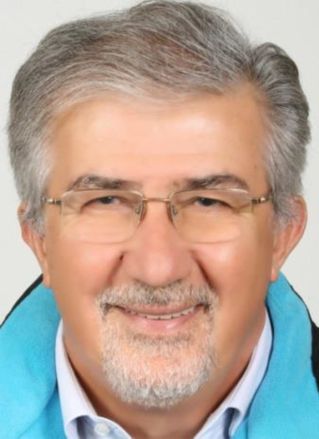 Prof. Dr. Erdal Özhan spent most of his academic career (1975-2004) at the Middle East Technical University (METU), Ankara, Turkey, initially as an academic in the field of coastal engineering. Following a series of undertakings for Dalyan Beach (1981-88), he shifted gradually to coastal management in late 1980s to become one of the early experts in this field. At METU, he set up Coastal and Harbour Engineering Research Centre (KLARE) (nowadays Ocean Engineering Research Centre) and served as its Director for many years. In 1985, he led the creation of METU Subaqua Society as its founding Academic Advisor and initiated academic activities (new courses and research) in the field of coastal management in 1989. During 1986-88, he was in charge of the first campaign in Turkey for monitoring the nesting of marine turtles (caretta caretta) along Dalyan Beach with members of the METU Subaqua Society. He set up the Turkish National Committee on Coastal Zone Management (January 1993) and chaired it until 2007. In 1990, he started creating the MEDCOAST Network for providing scientific support to integrated coastal management in the Mediterranean and the Black Sea countries. MEDCOAST received a high level of international recognition and played a substantial role in enhancing coastal and marine research together with ICM practices.
Prof. Dr. Erdal Özhan spent most of his academic career (1975-2004) at the Middle East Technical University (METU), Ankara, Turkey, initially as an academic in the field of coastal engineering. Following a series of undertakings for Dalyan Beach (1981-88), he shifted gradually to coastal management in late 1980s to become one of the early experts in this field. At METU, he set up Coastal and Harbour Engineering Research Centre (KLARE) (nowadays Ocean Engineering Research Centre) and served as its Director for many years. In 1985, he led the creation of METU Subaqua Society as its founding Academic Advisor and initiated academic activities (new courses and research) in the field of coastal management in 1989. During 1986-88, he was in charge of the first campaign in Turkey for monitoring the nesting of marine turtles (caretta caretta) along Dalyan Beach with members of the METU Subaqua Society. He set up the Turkish National Committee on Coastal Zone Management (January 1993) and chaired it until 2007. In 1990, he started creating the MEDCOAST Network for providing scientific support to integrated coastal management in the Mediterranean and the Black Sea countries. MEDCOAST received a high level of international recognition and played a substantial role in enhancing coastal and marine research together with ICM practices.
With MEDCOAST, he has been in charge of one of the oldest and longest running international ICM training (MEDCOAST Institute 1994-2016). He has also been the lead person for the biennial MEDCOAST conference (1993 – 2017). He was the initiator and the Director of the NATO TU-Waves Project (1992-2000), a major engineering project financially supported by the NATO SfS Program. He was the Founding Dean of the Faculty of Engineering at Mugla University (2004-07). While creating the new Faculty, a major ICM project that he designed for the Inner Gokova Bay was selected for funding by the SMAP III Program of the European Commission. He took early retirement from Middle East Technical University in 2007 for setting up the Mediterranean Coastal Foundation. Since then, he has been workings full-time as the President of the Foundation and leading the MEDCOAST’s scientific activities. Among other recognitions, he is the recipient of the prestigious Pew Fellowship Award in Marine Conservation (1997) given by the PEW Charitable Trust (USA) and the Coastal Zone Management Award (2005) given by the Coastal Zone Foundation (USA).
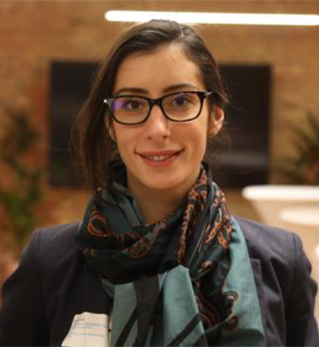 Ivana Lukic is a Marine Policy and Planning Senior Consultant currently working at s.Pro - sustainable projects GmbH/ SUBMARINER Network for Blue Growth EEIG in Berlin, Germany. Ms. Lukic has over 5 years of work experience leading international projects and studies related to the role of MSP in fostering blue growth, blue growth indicators, vision and strategy development in MSP, and cross-sectoral conflicts and synergies with offshore wind. In the MULTI-FRAME project, Ms. Lukic is currently coordinating the multi-national team working on the ocean multi-use scenario development in six project countries (Norway, Sweden, USA, Mozambique, France, Brazil) and is leading the development of the Multi-Use Commercialisation Roadmap as part of the UNITED demonstration project.
Ivana Lukic is a Marine Policy and Planning Senior Consultant currently working at s.Pro - sustainable projects GmbH/ SUBMARINER Network for Blue Growth EEIG in Berlin, Germany. Ms. Lukic has over 5 years of work experience leading international projects and studies related to the role of MSP in fostering blue growth, blue growth indicators, vision and strategy development in MSP, and cross-sectoral conflicts and synergies with offshore wind. In the MULTI-FRAME project, Ms. Lukic is currently coordinating the multi-national team working on the ocean multi-use scenario development in six project countries (Norway, Sweden, USA, Mozambique, France, Brazil) and is leading the development of the Multi-Use Commercialisation Roadmap as part of the UNITED demonstration project.
Under the MUSES - Multi-Use in European Seas project, Ms. Lukic has led the EU-wide Ocean Multi-Use Assessment and Action Plan development process, that has advised the research and policy agendas across the EU. Her professional background also includes work on the regional offshore renewable energy aspect of the Rhode Island Ocean Special Area Management Plan, in United States. Ms. Lukic also has extensive international experience with industry engagement as the leader of the World Ocean Council MSP Working Group and as the coordinator of the Blue Solutions project. She has co-authored several publications on the topic of MSP and ocean multi-use and she is a co-author of the book Maritime Spatial Planning: past, present, future. She holds an international master diploma in MSP and quality engineering, and research experience at the Research Center in Biodiversity and Genetic Resources (Portugal).
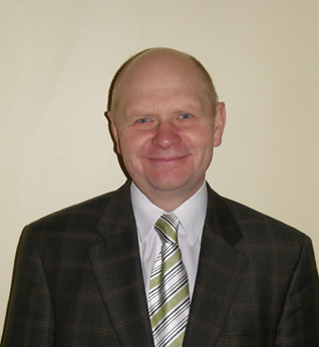 Professor doctor hab. Jacek Zaucha (PhD), co-founder of the Institute of Development, professor of the University of Gdańsk, Senator of the University of Gdańsk, member of the Committee for Spatial Economy and Regional Planning of Polish Academy of Sciences, member of the Pomeranian Investment Council for Repayable financial instruments and the Pomeranian Territorial Forum under the Marshal of the Pomorskie Region. Former chairman of the Polish section of Alumni Schools Committees at Princeton University, holder of a scholarship from Princeton and Oxford Universities. Former Chairman of the Committee for Spatial Development and Planning in the Baltic Sea Region.
Professor doctor hab. Jacek Zaucha (PhD), co-founder of the Institute of Development, professor of the University of Gdańsk, Senator of the University of Gdańsk, member of the Committee for Spatial Economy and Regional Planning of Polish Academy of Sciences, member of the Pomeranian Investment Council for Repayable financial instruments and the Pomeranian Territorial Forum under the Marshal of the Pomorskie Region. Former chairman of the Polish section of Alumni Schools Committees at Princeton University, holder of a scholarship from Princeton and Oxford Universities. Former Chairman of the Committee for Spatial Development and Planning in the Baltic Sea Region.
Participant and executor of the applied oriented projects related to spatial development for: the European Commission, the Ministry of Regional Development, the Gdańsk-Gdynia-Sopot Metropolitan Area, and principal investigator and investigator of the research projects financed by the Polish National Science Center, ESPON, Horizon 2020, the 7th Framework Program, and the BONUS Program. Author and co-author of publications in the field of spatial planning and development, spatial development, maritime development, territorial cohesion, EU cohesion policy and Baltic integration. Co-author of the EU Territorial Agenda 2020, the National Spatial Development Concept, the first Polish maritime spatial plan.
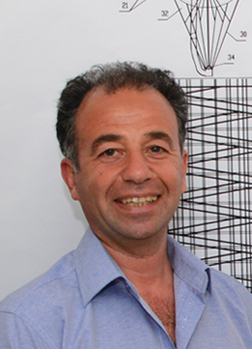 Arman Sarkisyan has a MSc of Marine Ecology from Naval Academy in Varna, Bulgaria. After internship in "Inspectorate for Environmental Protection", he started his own aquaculture reef project in parallel with his professional career as MARPOL Inspector in the Executive Agency Maritime Administration. Since 2009 Arman is founder, manager and technology innovator of the project "Sea harmony" (https://sea-harmony.com/) focused on the revival of marine ecosystems through business aquaculture technology. He has 2 Patents and 2-3 have been worked on. In 2015 he developed the EU Cross Border Cooperation Project Research and Restoration of the Essential Filters of the Sea /REEFS/, involving partners from Bulgaria (Bulgarian Biodiversity Foundation), Ukraine (Odessa Branch of the Institute for Biology of the Southern Seas), Romania (Mare Nostrum NGO), Georgia (Ilia State University) and Turkey (Karadeniz Technical University). In the EC Horizon 2020 Project "Ocean Reef Tower Oases: Feeding the World, Restoring the Oceans" he worked with the Institute of Hydro- and Aerodynamics to test his innovative reef models in the virtual max storm environment. Currently he develops the ORTO TM conception, and Pisa Reef TM technology in cooperation with BR technology - Sofia engineering company.
Arman Sarkisyan has a MSc of Marine Ecology from Naval Academy in Varna, Bulgaria. After internship in "Inspectorate for Environmental Protection", he started his own aquaculture reef project in parallel with his professional career as MARPOL Inspector in the Executive Agency Maritime Administration. Since 2009 Arman is founder, manager and technology innovator of the project "Sea harmony" (https://sea-harmony.com/) focused on the revival of marine ecosystems through business aquaculture technology. He has 2 Patents and 2-3 have been worked on. In 2015 he developed the EU Cross Border Cooperation Project Research and Restoration of the Essential Filters of the Sea /REEFS/, involving partners from Bulgaria (Bulgarian Biodiversity Foundation), Ukraine (Odessa Branch of the Institute for Biology of the Southern Seas), Romania (Mare Nostrum NGO), Georgia (Ilia State University) and Turkey (Karadeniz Technical University). In the EC Horizon 2020 Project "Ocean Reef Tower Oases: Feeding the World, Restoring the Oceans" he worked with the Institute of Hydro- and Aerodynamics to test his innovative reef models in the virtual max storm environment. Currently he develops the ORTO TM conception, and Pisa Reef TM technology in cooperation with BR technology - Sofia engineering company.
Awards & Recognitions:
• Prize diploma "Best Project for 2007-2013" for cooperation in the Black Sea region under the project "REEFS", Ministry of Regional Development and Public Works of Bulgaria, September 2015
• First prize – "Green Innovations for Sustainable Business", Norway grants, Innovation Norway, CEED Bulgaria, Sofia, Bulgaria, April 2016
• First prize at the "Forum Youth Entrepreneurship – StartUp 2016 – Go to Market", Varna, May 2016
• National Finalist "Climate Launch Pad" Winner for Bulgaria, CleanTech Bulgaria, Sofia, September 2017
• First prize, Theme award: "Sustainable food production systems", link Climate Launch Pad, Limassol (105 International finalists out of 964 projects, Climate KIC, the EU's biggest main climate innovation initiative), Cyprus, October 2017
• Blue Invest 2019. One of the 20 best Star Up Companies in the Blue sector in EU, Valletta, Malta, January 2019
• Solar Impulse Foundation - ORTO and Sea Harmony is a member in the 1000 solutions for sustainable development.
• Prize diploma "Best Project for 2007-2013" for cooperation in the Black Sea region under the project "REEFS", Ministry of Regional Development and Public Works of Bulgaria, September 2015
• First prize – "Green Innovations for Sustainable Business", Norway grants, Innovation Norway, CEED Bulgaria, Sofia, Bulgaria, April 2016
• First prize at the "Forum Youth Entrepreneurship – StartUp 2016 – Go to Market", Varna, May 2016
• National Finalist "Climate Launch Pad" Winner for Bulgaria, CleanTech Bulgaria, Sofia, September 2017
• First prize, Theme award: "Sustainable food production systems", link Climate Launch Pad, Limassol (105 International finalists out of 964 projects, Climate KIC, the EU's biggest main climate innovation initiative), Cyprus, October 2017
• Blue Invest 2019. One of the 20 best Star Up Companies in the Blue sector in EU, Valletta, Malta, January 2019
• Solar Impulse Foundation - ORTO and Sea Harmony is a member in the 1000 solutions for sustainable development.
